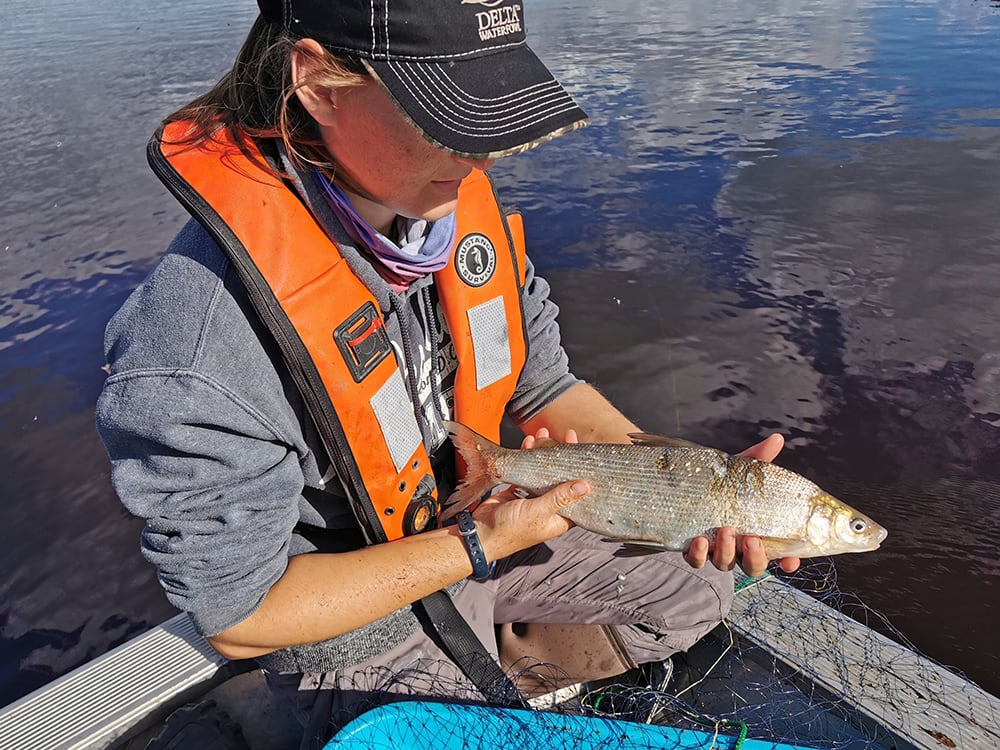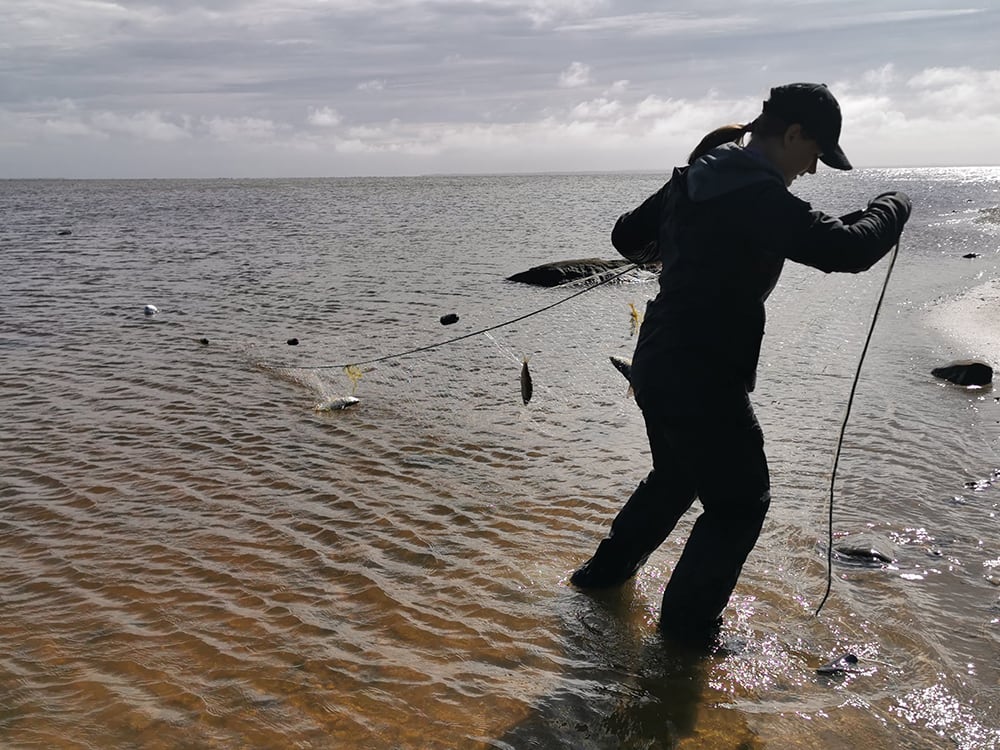The Assiniboine Park Conservancy’s (APC) Conservation and Research team recently travelled to Churchill, MB as part of two exciting research projects concerning arctic species.
The first project is an investigation of harbour seal diet and movement behaviour in the Churchill River area. This project is being led by Jillian St. George, an MSc candidate at the University of Manitoba, under the co-supervision of Dr. Stephen Petersen, Director, Conservation and Research at APC.
In order to examine seal diet and behaviour, the team collected fish and invertebrate samples from the Churchill River and the Hudson Bay. They then are using advanced lab techniques, including stable isotope and stomach content analysis, to determine what harbour seals, that were harvested by locals in the area, are eating. Our previous research observed an increase in harbour seals in the Churchill area and this project is investigating the potential impact of that change on the ecosystem.
This project is funded in part by Manitoba Hydro.


The second purpose of this trip was to gather data for APC’s ongoing Beluga Bits project. The Beluga Bits project is a collaborative effort with citizen scientists, Polar Bears International, Zooniverse.org and Explore.org, to collect and classify underwater images of beluga whales. The data collected from these images is then used to learn about beluga whale social structure, threats, health, and basic natural history. The APC team is particularly interested in beluga whale biology and social structure in the Churchill River estuary.
For this project, the team primarily uses underwater photos provided by explore.org and Polar Bears International, but when in Churchill, they are able to collect photos from above water to help validate results. To learn more about Beluga Bits, and to get involved, visit: https://www.zooniverse.org/projects/stephenresearch/beluga-bits
The Beluga Bits project is funded in part by the RBC Foundation.
Learning more about the biodiversity and ecology of Manitoba and the Arctic will help us learn how to better conserve it for the future. Thank you to the Churchill Northern Studies Centre for acting as a home base for our team during this trip, and safely supporting research during this uncertain time.





